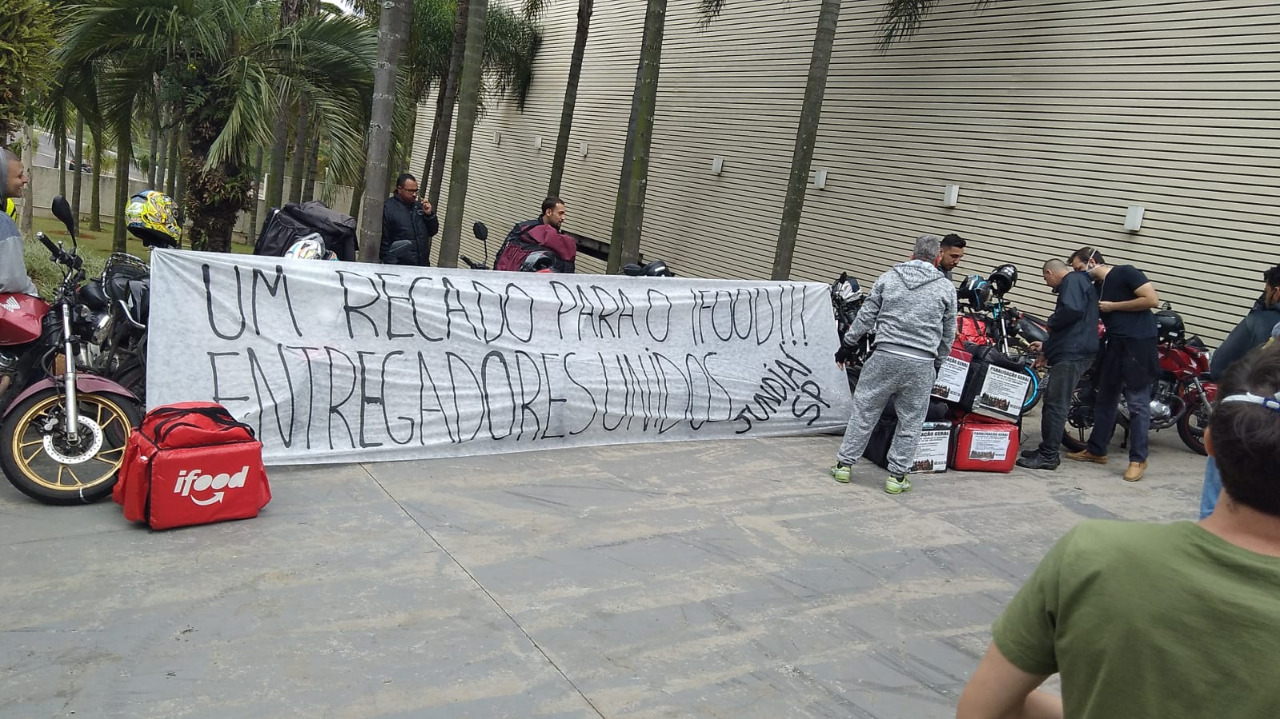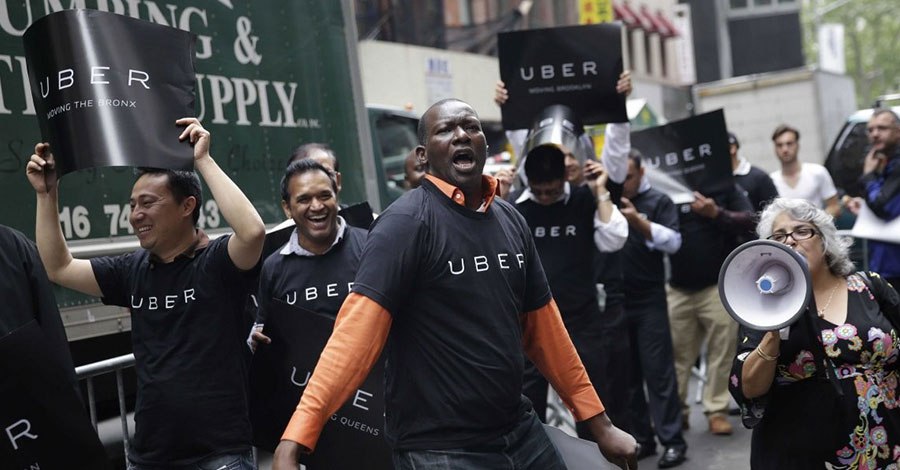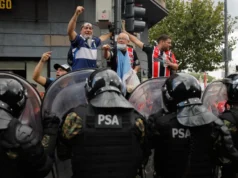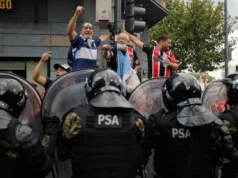By Mad Dog friends
Since last Friday (08/10), a wave of application delivery workers strikes has raged across many cities in São Paulo State. Taking advantage of the high demand for deliveries on children’s day (12/10), motorcyclists and bikers from different cities chose the long weekend to interrupt the delivery service and cause damage to iFood, Box Delivery, Bee, Rappi, and other companies. They demand payment increase, the implementation of a security code on every delivery to prevent undue account blocking, and the end of the double collection system.
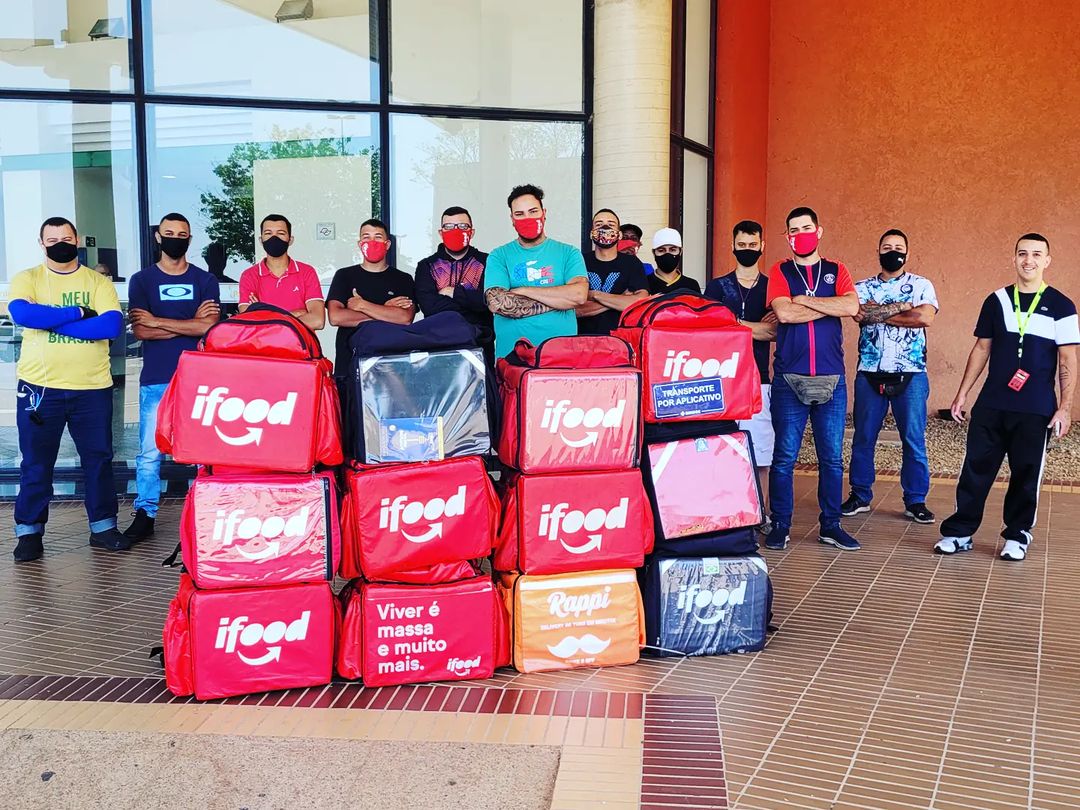
The delivery workers in Paulínia, Campinas Metropolitan Region, started the strike. Since Friday night, they stopped the withdrawal of orders in the main restaurants of the city. On Saturday, the strike grew with the adhesion of motorcyclists in Jundiaí, who since then meet daily in the delivery docks of the two malls in the city. Gradually, the struggle spread across the state: throughout the week, delivery workers started mobilizations in São Carlos, Bauru, São José do Rio Preto, and Rio Claro. Meanwhile, outside São Paulo, motorcyclists also paralyzed deliveries in Maceió on Sunday.
The impact was felt
Already on Sunday, a newspaper in the region of Jundiaí reported an atypical situation in the city: empty since the beginning of the pandemic, the food court in Maxi Shopping was overcrowded. Customers lined up to get a table. People who tried to order food through the application that day faced serious difficulties. With no motorcyclists to carry the orders, most restaurants saw the orders being wasted and preferred to turn off the plataforms
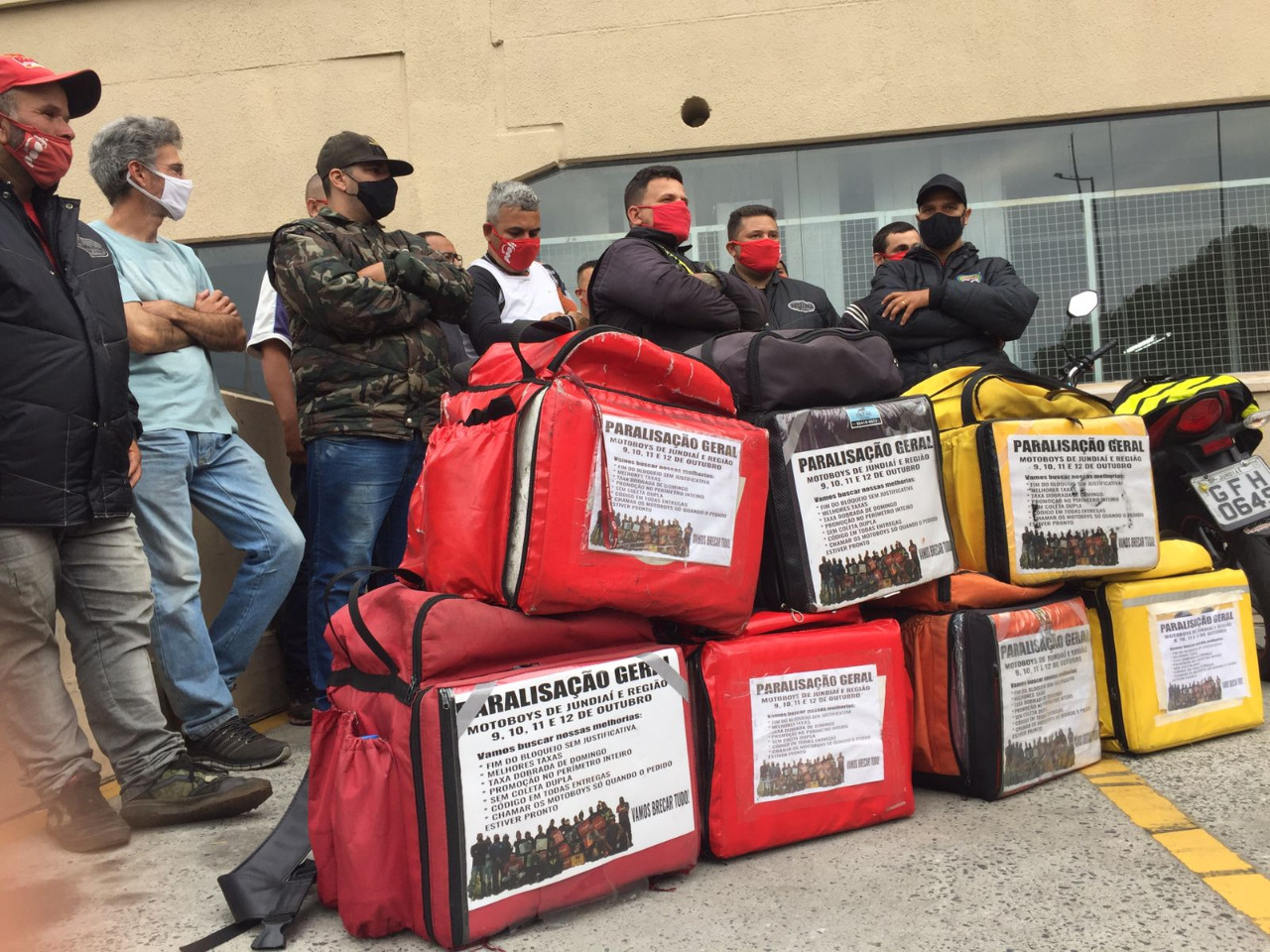
The rare restaurants that insisted on remaining open, such as Madero, were unable to deliver any order and received complaints from customers. Only restaurants that have their own fleets of motorcyclists, such as Bob’s, have continued to operate. In the applications, strikers only allowed orders for pharmacy items, essential in the pandemic.
Public support for the strike
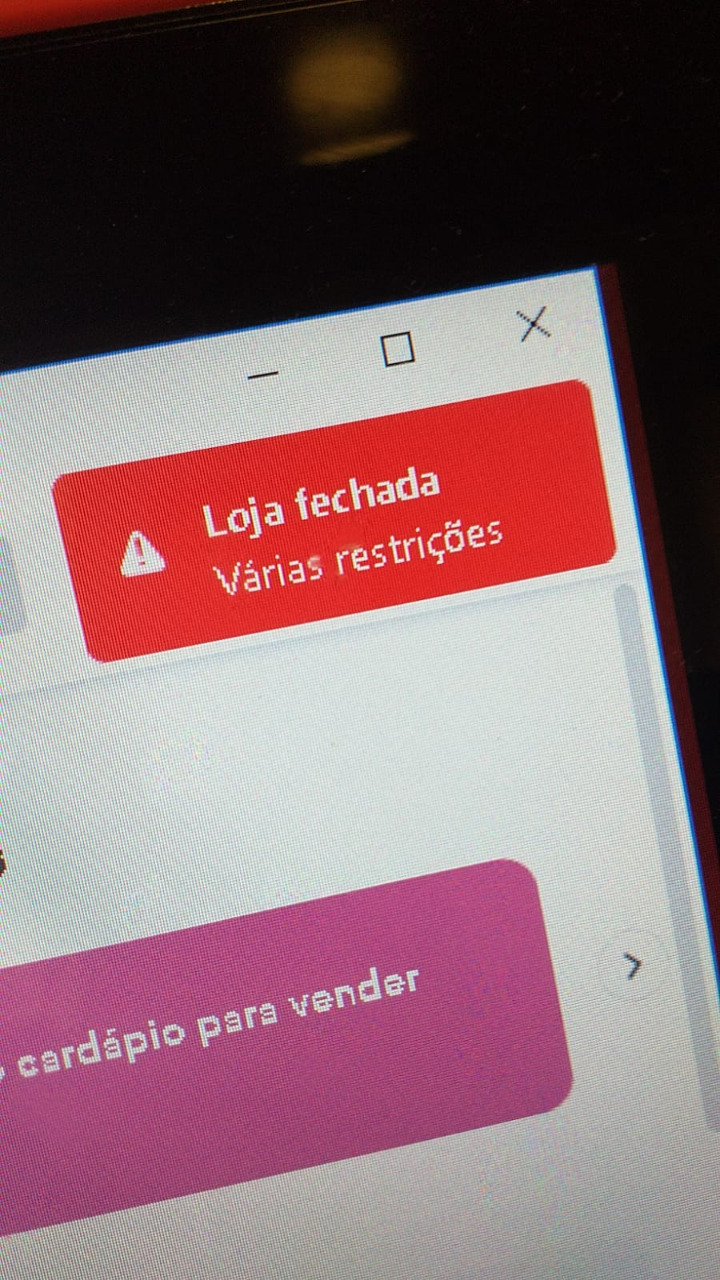
As the cities felt the effects of the shutdown, the population began to show solidarity to the delivery workers. In Jundiaí, a religious group organized to donate food and water to workers in the picket lines. In Paulínia, a popular YouTuber from the city did some stories about the movement The strikers also organized a virtual campaign to raise donations through Pix.[a system created by the Brazilian Central Bank to make instant payments and transferences]
No answers from iFood
So far, iFood and the other app companies seem to be trying to ignore the strike movement, with no attempt to establish any formal contact with the strikers. Even the company’s professional negotiator, the so-called “Responsible for Political and Institutional Engagement with Delivery Workers” Johnny Borges, which has already intervened in previous strikes, did not show up this time. While iFood articulates the realization of a “forum” with alleged leaders of the category to supposedly “listen to the delivery workers” this year, the official spokespeople of the app are ignoring strikes like the current ones.
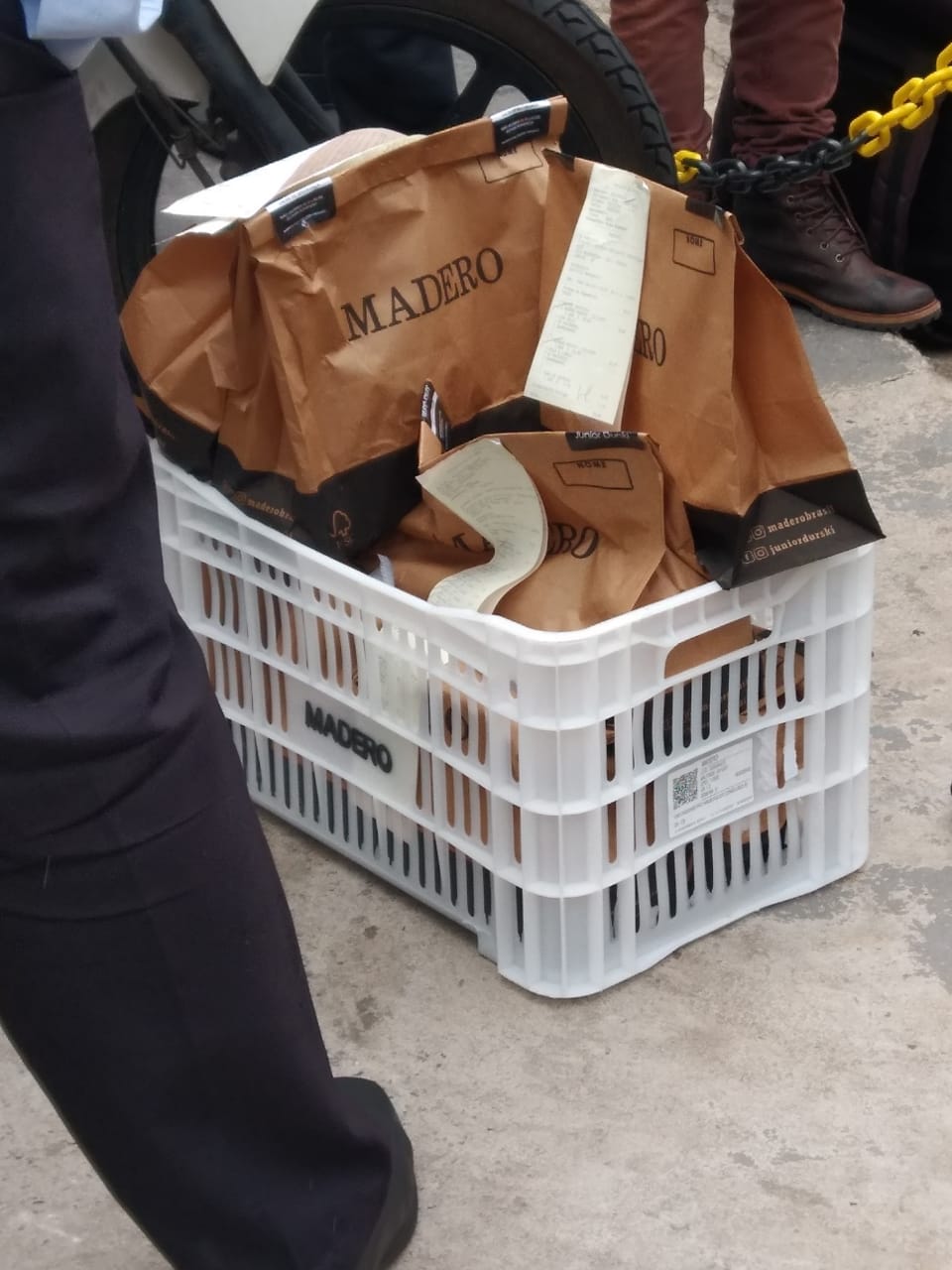
Instead of seeking mediation, iFood seems to be trying a different strategy. On Wednesday night (13/10), logistic operators (OLs) bosses — iFood third-party companies that are responsible for managing the work, paying the workers, and ensuring their compliance with the daily shifts — announced to their motorcyclist teams that restaurants in the region will reopen the platform and that the application will offer an additional payment of 5.00 reais per delivery.
Companies resort to violence
The psychological pressure of the bosses on their subordinates and the announcement of the additional payment, far above average for the region, is seen as a coordinated move to break the strike. In Paulínia, it is the first-ever additional payment launched by iFood By encouraging an abnormal flow of scabs, the application seems to bet on a strategy of stimulating situations of violence among the workers themselves.
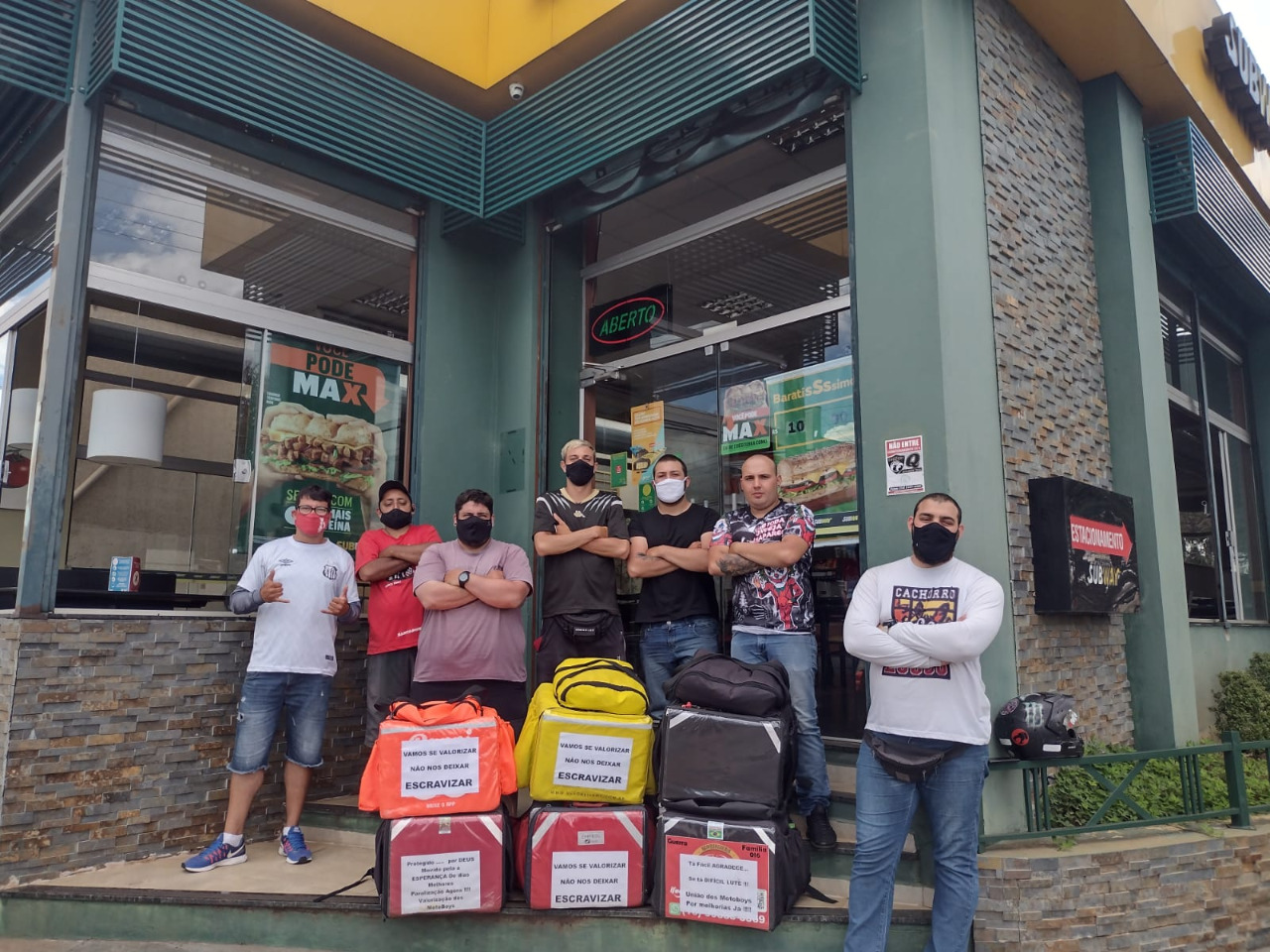
On Saturday, a delivery worker from São Paulo reported to Ralf MT YouTube channel having received death threats on a phone call made by a hidden number to interrupt the strikes. Complaining about the damage caused “to the financial part”, the author of the threats made it clear that he was linked to an iFood OL company, whose relationship with militias and other criminal groups is well known.
The strike continues
Despite the pressures, motorcyclists from Paulínia and Jundiaí are determined to carry on with the stoppage. Delivery workers in Paulínia maintained the blockages on Thursday (14/10), thus reaching the mark of the longest strike in applications in Brazil, surpassing the strikers of São José dos Campos, who paralyzed applications for 6 days in September.
In the wake of the São José movement, iFood had announced an 8% increase in the value of the deliveries starting in November – which, in practice, would mean an additional payment of only 8 cents per kilometre. In response to a readjustment that is lower than the increase in prices, especially gas, strikes have multiplied again in many cities in São Paulo still in October.
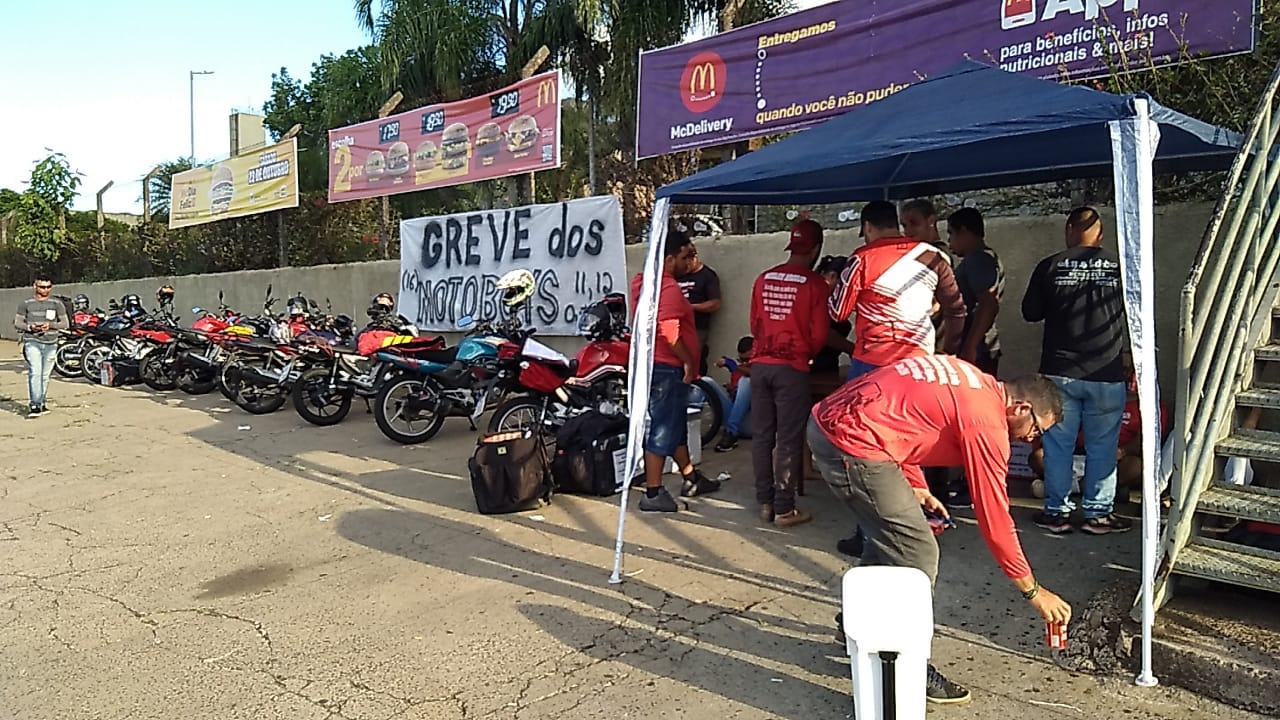
“It did not start in São José, it will not end in Jundiaí”, announces a motorcyclist in a video on WhatsApp. He is right: in Rio de Janeiro, delivery workers from Niterói are preparing to start an indefinite stoppage next Friday, 15/10. The growing strikes in different parts of Brazil give the movement the tone of a relay race that is far from over – therefore, it will hardly be brought down by fatigue or brute force.
Translate by Marcos Túlio Vieira


